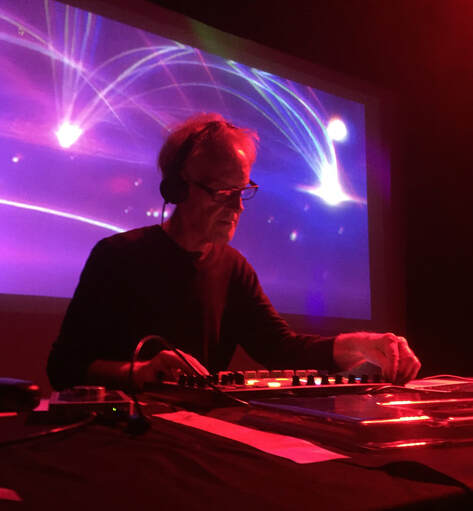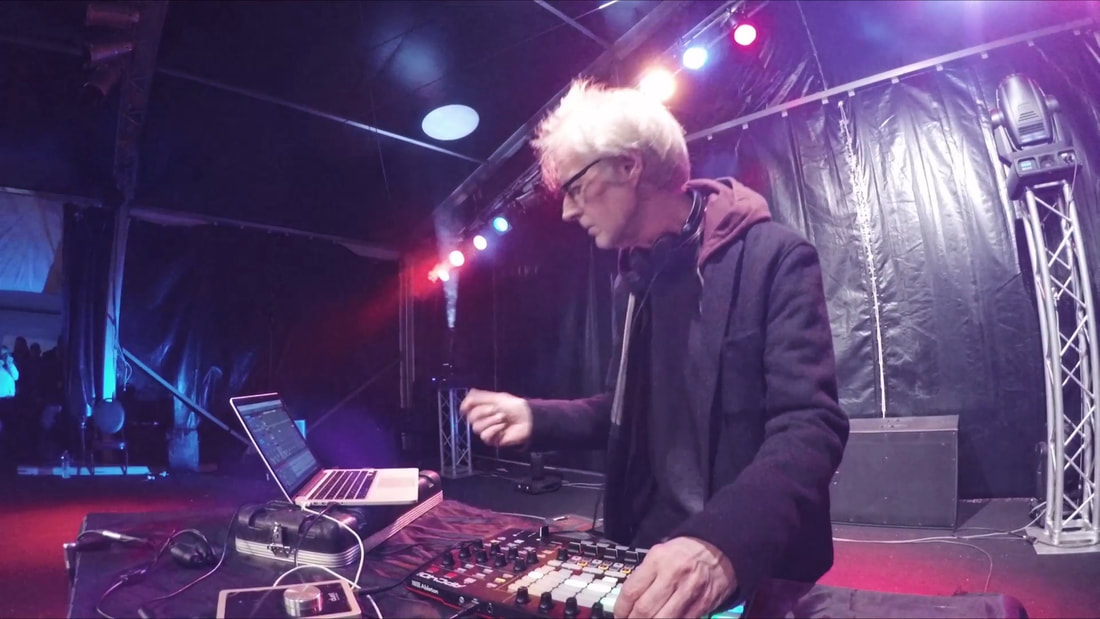
Daniel Masson Interview
Q: It’s been a couple of years since we talked. Can you update us on what you have been up to?
A: In 2016 I travel to Fès, Morocco to record musicians and singers for my project Walila.
The concept was to mix traditional Moroccan music in an electronic soundscape. I also performed at Sacred Music Festival of Fès which is a big international festival gathering World Music artists. The film Walila tells the full story of this amazing adventure and highlights the different stages of my music making process.
Since 2016 I’m also collaborating as composer and guitarist with Jack Casady, the bass player of the ’60s Californian bands Jefferson Airplane, Hot Tuna. An album will soon be available.
I have also performed my live mixes in Europe and Mexico.
Q: Your latest album Trajectories Vol.3 is inspired by your live mixes. Can you talk a little more about that?
A: In my live mix, I improvise with the sound materials I produced for all my previous projects. I live mix my collection of global sounds, voices and instruments I recorded all over the world. I blend, recycle and remodel these sounds and sequences to create new soundscapes. That concept brings me a creative freedom to explore a different vibe in my music. It also permits me to have a human and direct connection with my audience.
Q: Has your creative process evolved over the years?
A: Yes. I always adapt my creative process with technologies progress. The basics are still the same but the tools to create them are so much more powerful! I take advantage of this evolution. For instance the modern midi controllers give the musician a different and more organic approach with the audio softwares.
Q: It’s been a couple of years since we talked. Can you update us on what you have been up to?
A: In 2016 I travel to Fès, Morocco to record musicians and singers for my project Walila.
The concept was to mix traditional Moroccan music in an electronic soundscape. I also performed at Sacred Music Festival of Fès which is a big international festival gathering World Music artists. The film Walila tells the full story of this amazing adventure and highlights the different stages of my music making process.
Since 2016 I’m also collaborating as composer and guitarist with Jack Casady, the bass player of the ’60s Californian bands Jefferson Airplane, Hot Tuna. An album will soon be available.
I have also performed my live mixes in Europe and Mexico.
Q: Your latest album Trajectories Vol.3 is inspired by your live mixes. Can you talk a little more about that?
A: In my live mix, I improvise with the sound materials I produced for all my previous projects. I live mix my collection of global sounds, voices and instruments I recorded all over the world. I blend, recycle and remodel these sounds and sequences to create new soundscapes. That concept brings me a creative freedom to explore a different vibe in my music. It also permits me to have a human and direct connection with my audience.
Q: Has your creative process evolved over the years?
A: Yes. I always adapt my creative process with technologies progress. The basics are still the same but the tools to create them are so much more powerful! I take advantage of this evolution. For instance the modern midi controllers give the musician a different and more organic approach with the audio softwares.
Q: Speaking of evolving how do you feel electronic music has changed if at all in the last couple of years?
A: I feel like a lack of creativity and inspiration in electronic music since a few years. Maybe it’s due to the life of the 21st century musician who spends some of his time to market his music on socials. Maybe also the constant evolving of the music market has a harmful influence.
Q: Generally, What are your live shows like?
A: Most of the events I improvised upbeat dance soundscapes using a midi controller Akai APC 40 with Ableton Live software. I always prepare my live mix to adapt to the mood of the place. I like to create hypnotic ambiences in a dance-y context.
Q: What does the future look like for Daniel Masson?
A: In my eclectic musical career I always have had the envy to produce very different projects. I consider each of my project as an adventure. My next album is like a - go back to my roots - project with many guitars and bass parts I play as well as some minimal lyrics I sing. There are many vibes from the early ’70s and more melodic parts. It will released early 2019.
A: I feel like a lack of creativity and inspiration in electronic music since a few years. Maybe it’s due to the life of the 21st century musician who spends some of his time to market his music on socials. Maybe also the constant evolving of the music market has a harmful influence.
Q: Generally, What are your live shows like?
A: Most of the events I improvised upbeat dance soundscapes using a midi controller Akai APC 40 with Ableton Live software. I always prepare my live mix to adapt to the mood of the place. I like to create hypnotic ambiences in a dance-y context.
Q: What does the future look like for Daniel Masson?
A: In my eclectic musical career I always have had the envy to produce very different projects. I consider each of my project as an adventure. My next album is like a - go back to my roots - project with many guitars and bass parts I play as well as some minimal lyrics I sing. There are many vibes from the early ’70s and more melodic parts. It will released early 2019.

